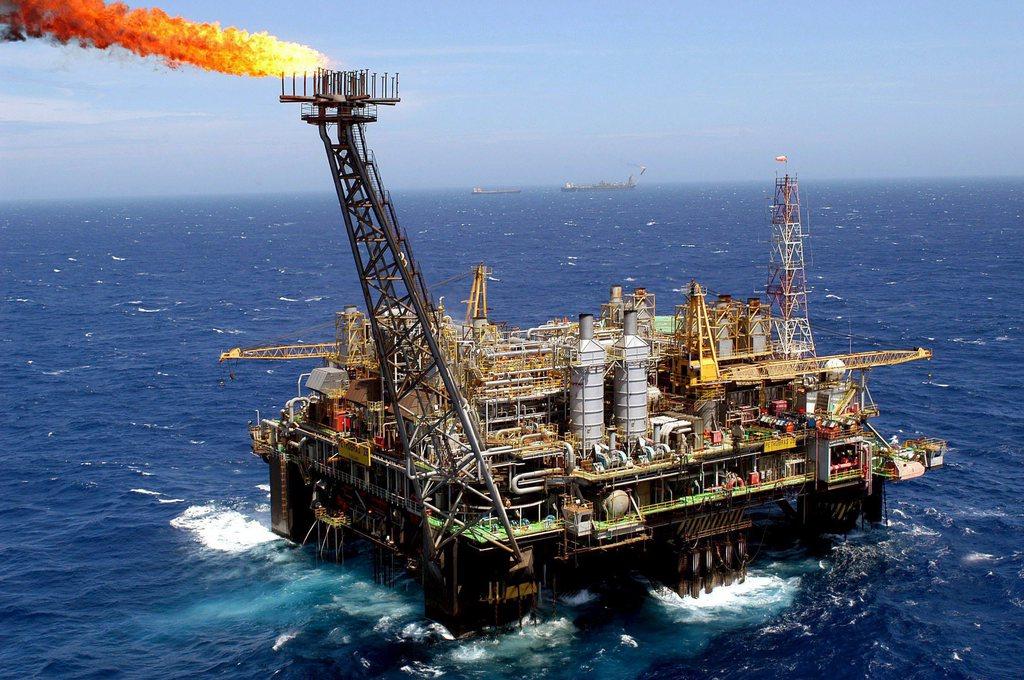How do traders ensure due diligence in high-risk countries?

Switzerland-based commodity traders Trafigura, Vitol and Glencore have recently come under scrutiny for their alleged links to corrupt intermediaries swept up in Brazil’s Lava Jato [Car Wash] investigations.
The companies deny wrong-doing in the South American nation, but the high frequency of corruption allegations in this sector centered around problematic intermediaries raises the question of how commodities traders ensure due diligence in high-risk countries.
“The cases and investigations involving the commodities sector would suggest that in many instances due diligence processes are weak, perhaps non-existent or risks are inadequately mitigated when red flags are apparent,” Gemma Aiolfi of the Basel Institute on Governance told swissinfo.ch.
In a November report entitled “Friends in Low Places”,External link Global Witness and Public Eye laid out a long list of red flags raised by the in-court testimony of individuals embroiled in Brazil’s Car Wash scandal. It concluded there was “clear bribery risk in the cases of all three commodity traders” and urged Swiss authorities to investigate whether middlemen paid or promised bribes to secure business for Glencore, Vitol or Trafigura – with or without their knowledge.
What is Operation Car Wash?
Operation Car Wash began in March 2014 as an investigation into allegations that executives at Brazil’s state oil company Petrobras had accepted bribes from construction firms in return for awarding them contracts at inflated prices. The accused included dozens of politicians including Brazil’s popular former president Luiz Inácio Lula da Silva, who began serving a 12-year sentence on corruption charges in April.
The Office of the Attorney General of Switzerland told swissinfo.ch that it has opened 100 criminal proceedings related to the case Petrobras-Odebrecht [a Brazilian multinational that admitted guilt in a cash-for-contracts corruption scheme], and is in close contact with various prosecution authorities, particularly those of Brazil. It said it had taken note of the Public Eye findings but was not conducting any criminal investigations against the oil traders in connection to this case at this time.
The three companies insist there is no evidence of wrong-doing and that they uphold high standards of due diligence in Brazil and beyond. “Trafigura undertakes due diligence on all of its counterparties both when we first enter into a relationship and then on a daily basis for the life of the relationship,” the company said.
Being attentive to ‘red flags’
Part of that process involves screening such entities and related key individuals by using an industry database called World-CheckExternal link, the company noted. This screening procedure raises flags for high-risk indicators linked to these entities or individuals, including Politically Exposed Persons (PEP) exposure. In these cases, the compliance team steps in and other checks might be applied.
When asked about its due diligence methods, Vitol stressed that commodity traders, like financial institutions “are subject to stringent laws in their dealings with Politically Exposed Persons (PEPs), including those relating to anti-bribery and anti-money laundering”. Glencore’s Global Anti-Corruption PolicyExternal link opens matter-of-factly: “Bribery is a criminal offense.”
International traders must adhere to the U.S. Foreign Corrupt Practices Act of 1977, which puts in place accounting transparency requirements and provisions relating to the bribery of foreign officials; or the stricter Bribery Act of 2010. The extent of the corruption risks for commodities trading industry runs in fragile states is clear to Switzerland, where commodity trading accounts for 4% of GDP.
“The awarding of public contracts, the granting of licenses, the payment of royalties, the creation of monopolies, and the determination of custom policies are all procedures that tend particularly to attract incitement to bribery,” the Swiss government observed in its 2013 report on commoditiesExternal link.
Anti-corruption campaigners would like sector-specific regulations that acknowledge and address these challenges.
The role of intermediaries
Public Eye has noted that a common strategy used by commodities traders operating in jurisdictions where the rule of law is weak to gain market share involves the outsourcing of risk by paying intermediaries. After anti-corruption agreements have been signed, the intermediary is free to pay all or part of their commission to public officials in exchange for the desired contract.
In the case of Brazil, the watchdog outlines how companies engaged shadowy middlemen allegedly involved in bribery schemes worth millions.
Key Findings as outlined in the “Friends in Low Places” report:
· Vitol’s agent for Brazilian oil deals was a key player in a network shown in court documents to have drawn up multiple bribery schemes, with the collaboration of insiders at state oil firm Petrobras. Vitol paid him through an offshore company that had been at the centre of this network’s plans.
· Glencore struck a deal with another middleman who had been part of this same network. Glencore made an agreement with the middleman over the purchase of a cargo of fuel oil from Petrobras, the commodity trader admitted.
· A Glencore subsidiary paid at least $2.1m to a father-and-son team of alleged bribe fixers. Glencore says it engaged the pair as legitimate brokers and denies impropriety. But a financial report prepared for a top Petrobras director lists thousands of dollars due as a bribery payment from a “Trading Glencore” deal, allegedly paid by the fixers.
· Trafigura is the subject of a current police investigation in Brazil, Petrobras told Global Witness. Trafigura and Brazil’s Federal Police declined to comment.
· Two of the most central figures in the Car Wash scandal – including Brazil’s “Deacon of Bribes” – exchanged messages on how to dole out bribe payments from a proposed $2 billion Trafigura oil deal, court documents show. Trafigura admits proposing the abortive oil deal to Petrobras, but said it had not “retained” the Deacon, now serving a 13-year bribery sentence.
“Just about every corruption investigation and prosecution involving companies paying bribes involves an intermediary,” noted Aiolfi. “Companies still seem to think that they can somehow distance themselves by outsourcing the risk, when the laws clearly state that it is not possible.”
Anti-corruption laws in Switzerland and Brazil criminalise the payment of bribes to government officials directly and indirectly. This puts the onus on companies to guarantee that third parties they contract to advance their interests do not engage in bribery – a rampant problem in Brazil and many resource-rich countries. To stay on the right side of the law and compliance regulations, the involvement of an intermediary requires a well-documented business reason.
Roger Müller, a Zurich-based Swiss lawyer, has seven Brazilian clients caught up in the Car Wash investigation, most of them traders. Commodities traders, he explained, are not legally liable for the behavior of a third party, provided they ensure due diligence on their end by clearly identifying the agent and documenting a legal reason for every payment.
“You have to be aware of the red flags that indicate risk of corruption or indicate money laundering,” he said. “These red flags can be the occurrence of an intermediary, of a proxy, of a lobbyist, who you don’t know exactly what he is doing, or the use of offshore companies.”
Aled Williams, a senior adviser at U4 Anti-Corruption Centre, noted that the tendency to mix business with politics when it comes to sectors of strategic importance to the economy, such as oil, is not limited to the developing world.
“It is a matter of degrees,” he told swissinfo.ch. “The Car Wash case shows that you need the political connections. That’s pretty clear. But it’s not like this is a question only for countries like the Democratic Republic of Congo or Brazil. This is a question also if you are doing a major investment in OECD countries.”
Guidelines and best practices
The OECD, mindful that international commercial transactions are fertile ground for the giving and taking of bribes, recommends companies adopt strong internal control mechanisms, adequate ethics and compliance measures, and ensure due diligence when engaging third parties. Switzerland’s State Secretariat for Economic Affairs (SECO) offers a guide on preventing corruption for Swiss companies operating abroad.External link
The Federal Council on Thursday released a best practicesExternal link guide for the sector, the outcome of a public consultation with NGOs, the private sector and the Geneva cantonal authorities, building on the United Nations Guiding Principles on Business and Human RightsExternal link. On Friday it realeased a new reportExternal link outlining areas of progress and enduring challenges in the strategic sector.
Experts recognize that the commodities sector is particularly vulnerable to corruption but there is debate on whether the solution lies in more laws and regulation, or stronger enforcement of existing legislation.
Public Eye believes the Swiss government shies awayExternal link from regulating the commodities trading sector to safeguard the attractiveness of Switzerland as a business location. The OECD questions the low number of legal proceedings in such a prominent commodities hub. Commodity traders argue financial sector regulation keeps them in line. Muller, the lawyer, believes existing laws such as the Anti-Money Laundering Act are “enough” and opposes turning “private companies into a business police – that’s not the duty of the private sector.”
Williams noted that it is not an easy question for the commodities companies involved as they operate in some very difficult environments with challenging political and economic governance.
“Due diligence means different things to different people, unfortunately, and there is a sense of a corporate compliance culture that tries to get away with the minimum possible standards in a strict legal sense,” he said. “What it should be about is knowing that the actors you are doing business with all along the value chain are clean, and that all the commodities you are sourcing are obtained legally, yes, but also ethically and in a sustainable way.“
He added: “Simply operating in some country contexts means a business will come under pressure to engage in corruption or other illegal or unethical acts, so businesses need support from their home jurisdictions to overcome these challenges, even as strict sanctions should be applied for transgressions.”
POLITICALLY EXPOSED PERSONS (PEPS)
Politically Exposed Persons are individuals who hold or held a prominent public function, such as the head of state or government, senior politicians, senior government, judicial or military officials, senior executives of state-owned corporations, or important political party officials. The term often includes their relatives and close associates. Banks and other financial institutions are supposed to treat these clients as high-risk, applying enhanced due diligence at both the start of the relationship and on an ongoing basis, including at the end of a relationship to ensure that the money in their bank account is not the proceeds of crime or corruption.
Banks must subject Politically Exposed Persons to more robust and effective enhanced due diligence checks to ensure the legitimacy of their source of wealth.
Source: Transparency International

In compliance with the JTI standards
More: SWI swissinfo.ch certified by the Journalism Trust Initiative













You can find an overview of ongoing debates with our journalists here . Please join us!
If you want to start a conversation about a topic raised in this article or want to report factual errors, email us at english@swissinfo.ch.